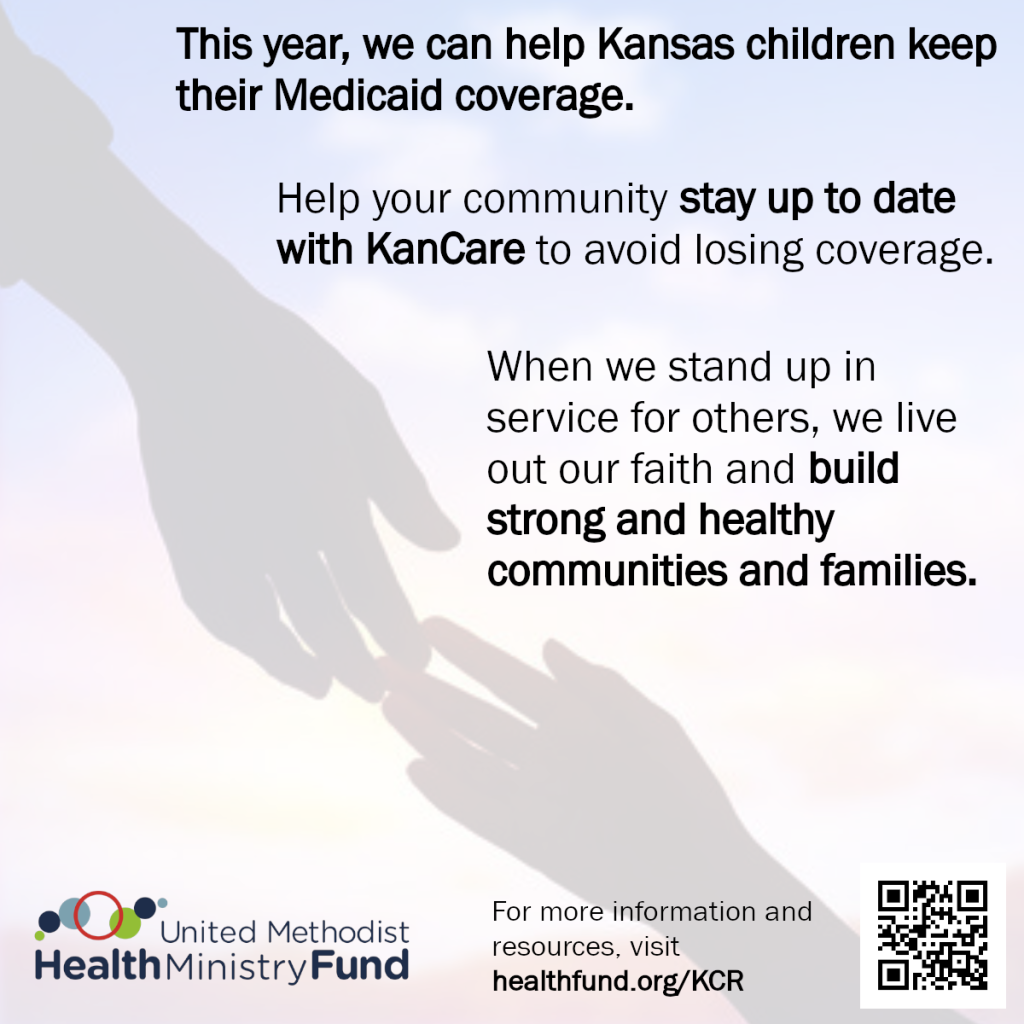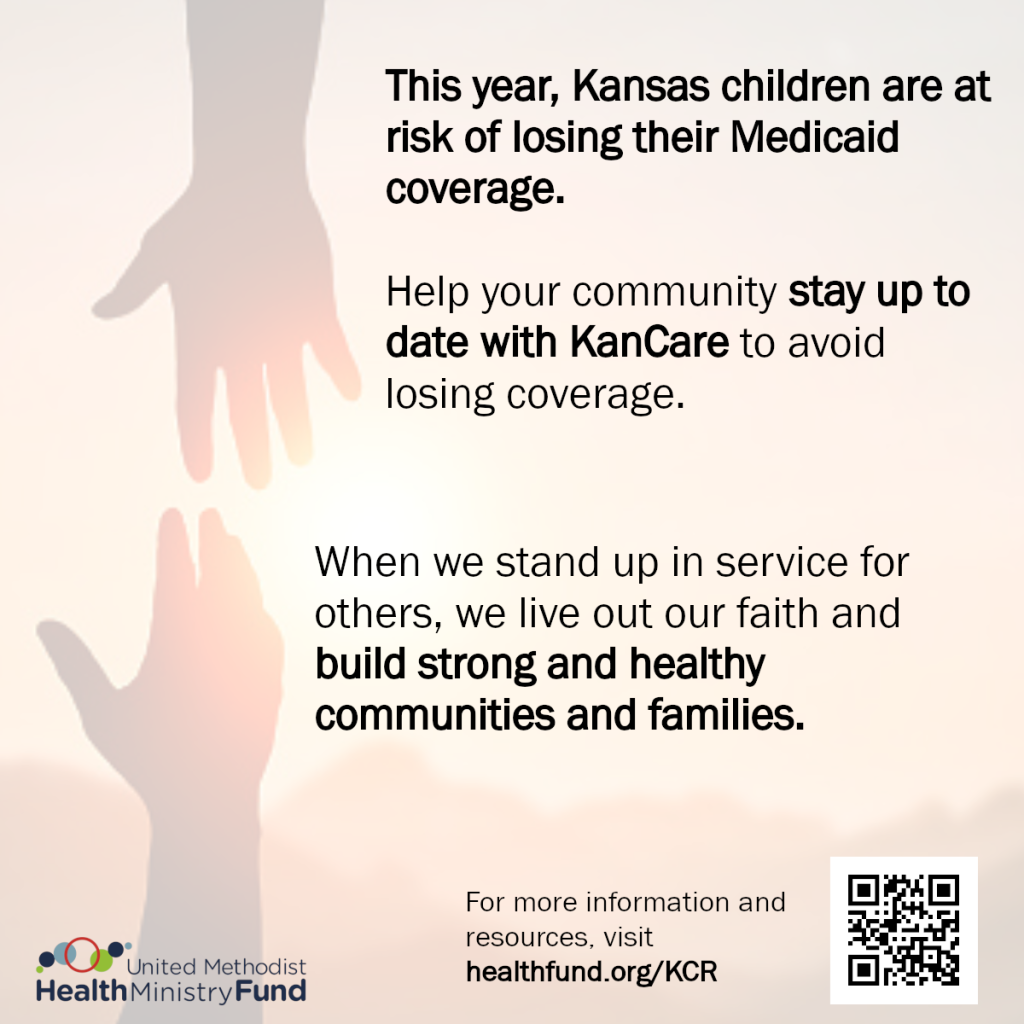This opinion piece by opinion editor, Clay Wirestone of the Kansas Reflector captures a conversation with Health Fund President David Jordan and Former state representative and child care professional Monica Murnan. This piece originally appeared in the Kansas Reflector on March 18, 2024.
The first five years of a child’s life are vital for growth and development. Yet services for the youngest Kansans are split among four different state agencies. A task force last year recommended consolidating those services under a single office, and there’s a piece of legislation to do just that.
Former state representative and child care professional Monica Murnan and United Methodist Health Ministry Fund president David Jordan joined me on Friday to talk about the legislation — House Bill 2785 — and the state of early childhood services throughout Kansas.
“The conversations that are happening now in Kansas are extremely exciting to me,” Murnan said. “As we have not just the standard early childhood communities talking about this, but now we have banded with business, with economic development forces, with all the folks who recognize the connection to health and behavioral health care, to have this really important conversation about the consolidation and organization of how the state offers that infrastructure.”
This subject resonates deeply with me.
Not only am I the parent of a child, one who has experienced preschool, K-5 and now middle school, but I also spent four years working in the field of child advocacy. I worked four years at Kansas Action for Children as communications director, in what ended up being an interregnum in my journalism career. However, meeting and working with folks including Murnan and Jordan taught me so much.
It also showed how far we have to go in making sure that kids younger than 5 have great places to learn and grow.
“A kid in Garnett does not get what a kid in Gardner gets, which a kid in Garden City gets,” Murnan said. “It’s highly dependent. And the second thing that we know, through needs assessments, it also is highly dependent upon the adult in the kid’s life ability to navigate multiple systems.”
To be specific, early childhood services in Kansas right now are divided into separate fiefdoms. The Kansas State Department of Education oversees the Parents as Teachers program. The Kansas Children’s Cabinet and Trust Fund runs grants, along with a handful of other programs. The Department for Health and Environment includes both maternal health and child care licensing operations. Finally, the Department for Children and Families handles child care subsidies, home visits and Head Start collaborations.
Whew. Discussions about bringing these programs together under one umbrella have gone on for awhile, but last year a task force convened by Gov. Laura Kelly issued official recommendations. Members agreed that Kansas could use a centralized early childhood hub.
Such an office wouldn’t just integrate previously disparate programs. Its leader could help the whole state chart a path forward.
“While they all collaborate very well, and there’s a lot of energy and excitement around building a shared vision on how we can make Kansas the best state to raise a family, there’s challenges that exist with interacting with the system,” Jordan told me. “And one major challenge also is the the lack of a clear leader who has authority for driving an agenda, building and driving the agenda forward, and working in concert with any executive in governor’s office to do so.”
Roughly 150 Kansas early childhood leaders showed up at the Statehouse on March 6 for an advocacy day and bill hearing.
Unfortunately, that hearing was rescheduled for the next day, with testimony spilling over into the following Monday, March 11. Best-laid plans and all that. Both Murnan and Jordan sounded positive about the hearings and the potential for having the proposal come to fruition this session.
After several weeks where the best news to come out of the Statehouse was the occasional rumor of a tasty bag of Cheez-Its from the basement vending machines, that’s enough to lift my spirits.
Not everything happening in Topeka has to be dire. Just most things, perhaps.

“The other thing that I really picked up when I was sitting in the room is these are not the usual suspects that are talking,” Murnan said. “You know, you’re always going to see Monica Murnan in the room, right? You’re always going to be see Kansas Action for Children. But other folks are talking and saying we must do something now. And I think that is really important to anybody who is in an elected position to take notice of.”
Jordan added: “The other piece that I would just echo is that there was over 700 child care providers, economic development professionals, families that signed on to the letter in support of the office of early childhood. To see that multi-sector support in the early childhood space really speaks to the level of interest in this topic and in this particular policy proposal.”
Widespread interest can lead different opinions, of course.
Debate over the Senate’s budget bill Wednesday saw extensive discussion about a child care amendment. Discussion between legislators included calls for changing child-to-provider ratios and loosening licensure requirements. In other words, they recycle tired tropes about government being the problem, even when it comes to keeping little kids safe. I asked my podcast guests what they thought about such proposals.
“I really look back and say if that had been the solution, we would have done it a long time ago,” Murnan told me. “And it is something that I believe in firmly that the regulations that we have in Kansas, ones that I worked under for years and years, are intended to protect kids. And I think we have to be very careful when we look at anything that removes protections. I am all for streamlining regulations. I’m all for anything that we stop and look at in a concerted way.
“But but to think there is any one solution to child care issues is not something that I have ever been able to find.”
No one believes that creating an office of early childhood will magically create abundant and affordable high-quality child care. But it would allow parents, providers, legislators and the public a starting point to grappling with one of the biggest challenges for families and economic development. Fixing the problem will take time, money and dedication from sectors across the state. Murnan compared the necessary changes to the transformation in higher educated created by the G.I. Bill.
So buckle up, folks. We have a long way to go, and a bumpy road ahead.
Clay Wirestone is Kansas Reflector opinion editor. Through its opinion section, Kansas Reflector works to amplify the voices of people who are affected by public policies or excluded from public debate. Find information, including how to submit your own commentary, here.
To listen to the complete podcast, follow this link.

